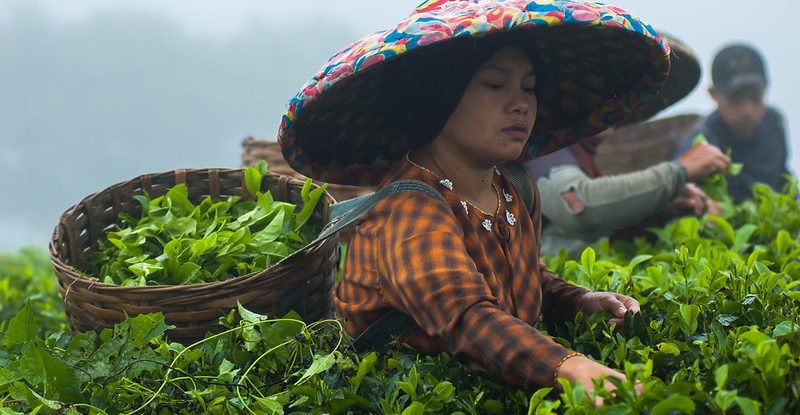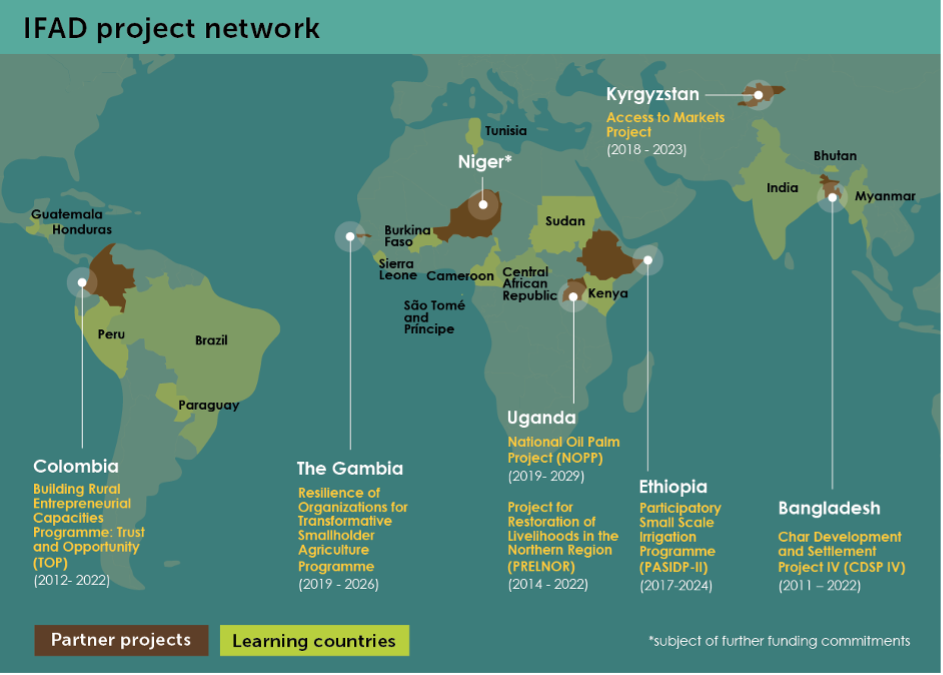
A new research project between a consortium of CGIAR Centres and the International Fund for Agricultural Development (IFAD) will generate evidence on the potential contribution of different kinds of gender transformative approaches for achieving more equitable and fairer outcomes for men and women in accessing and controlling land and its resources.
When Rosario’s husband died, her life was turned upside down. Not only did she lose her life and business partner and the father of her children, she soon found that she had also lost her rights to the land she had been cultivating with her family.
Stories like Rosario’s are commonplace and reflect women’s vulnerability given that in many contexts, women access land through male relatives — e.g. spouse, father, uncle — rather than in their own right, and lack control and secure rights to land. Furthermore, in cases where land use is collective, for instance pastoralist communities or land associations, recognition of women’s rights is subject to the set of norms that define how they can engage in land use decisions at the local level.
When it comes to land and resources, access and control are vital components of women’s empowerment. Land is a critical physical asset but also has a social role, defining social status and political power and structuring relationships both within and outside the household.
And even when changes are made in laws and regulations that recognize women’s rights to own land, through for example, the recognition of matrimonial property or promoting join certification of land between spouses, the implementation of these can be significantly challenging, often due to lack of awareness of the scope of the regulations, but also to traditional practices and lineage systems that discriminate against women and see them as outsiders in the husband’s family land.
In response to the urgent need to transform women’s land rights, IFAD invited a consortium of the Center for International Forestry Research and World Agroforestry (CIFOR-ICRAF), the International Food Policy Research Institute (IFPRI), the Alliance of Bioversity International and the International Center for Tropical Agriculture (CIAT) to work with selected IFAD projects to promote and strengthen women’s land rights through the integration of gender transformative approaches in rural development interventions.
What are gender transformative approaches?
U.N. Sustainable Development Goal 5 calls for equal rights to economic resources, ownership and control of land, and women’s access to resources. However, women continue to be disadvantaged by lack of recognition and insecure rights to land and resources and by exclusion from decision making and governance systems from local to national levels.
Barriers that prevent women’s access to, control and use of land and other productive resources depend on local contexts. They may include inadequate legal frameworks, ineffective implementation of policy at national and local levels, and discriminatory norms and practices at institutional and community levels. If these barriers are not recognized and proactively addressed, investments and development initiatives in the agricultural sector can exacerbate gender inequalities in this area.
Gender transformative approaches challenge the underlying barriers that sustain gender inequality, such as norms and institutional structures. Rather than addressing the symptoms — e.g. unequal income — these approaches propose to identify factors that enable and catalyze transformation to achieve a more equitable involvement of women and girls in decision making, control of resources and control of their own labor and future.
Why apply gender transformative approaches to transform women’s land rights?
Land tenure refers to rules, norms and institutions that govern how, when and where people access land or are excluded from this access. Land rights, impacted by these formal and informal tenure rules and practices, regulate the ways in which women and men access, manage and benefit from land under different tenure arrangements. Consequently, land rights significantly influence women’s abilities to make decisions over land and their security of tenure. Applying gender transformative approaches allow identifying the barriers to the recognition of women´s land rights as well as the mechanisms to enhance their exercise of rights.
For over four decades, IFAD has worked consistently to promote rural women’s land rights. We’ve seen the benefits that come from enabling women to take control of their land rights, from sustainable management of natural resources, to expansion of women’s business activities, to better health and nutrition, to women’s increased participation in local and regional governance. We now need to bring these experiences to scale. — Harold Liversage, Lead Technical Specialist, Land Tenure, IFAD
What’s new?
The new initiative, launched in 2021, will last three years and will work directly with six IFAD projects on land tenure and land rights issues:
IFAD partner projects

The initiative has started by talking with each of the project teams and conducting a literature review to understand the issues around gender and land rights within each country and in each project. What approaches have been tried? And what have been successes and disappointments? What legal and regulatory frameworks as well as norms and institutions pose constraints or offer opportunities to strengthen women’s rights to land?
The researchers are compiling a list of tools that can be used in gender-transformative approaches, some of which are already being used by the IFAD teams, and will work with the teams to systematically pilot which work better for what and where.
All this valuable information will be captured and shared as we go along, since an important component of the project is to make sure that experiences and innovations are shared and discussed as widely as possible. The initiative anticipates knowledge sharing:
- Within the IFAD projects and their partners
- Among IFAD projects, including the six that will be involved in piloting gender transformative approaches and beyond
- With national partners in order to integrate evidence into national policy
- At a global level among institutions interested in more equitable land rights, gender transformative approaches or both
For years, women’s organizations have mobilized to put land rights issues in the policy and development agenda to address unequal access to land. While important efforts have been made in the recognition of rights through joint titling and joint certification, many times social norms constrain women to actually realize those rights gained. This project will use gender transformative approaches to tackle this issue learning from what has worked on the ground, identifying approaches to tackle barriers and adding value to these ongoing efforts. — Iliana Monterroso, Scientist, Gender, Justice and Tenure, CIFOR
WHAT COMES NEXT?
The initiative has only just begun but has potential to generate powerful lessons by systematically comparing the results of using different gender transformative approaches in different contexts to strengthen women’s land rights.
Related resource:
The Compendium of good practices for gender transformative approaches for food security, improved nutrition and sustainable agriculture, co-produced by IFAD, showcases good examples of gender transformative approaches.
We want you to share Forests News content, which is licensed under Creative Commons Attribution-NonCommercial-ShareAlike 4.0 International (CC BY-NC-SA 4.0). This means you are free to redistribute our material for non-commercial purposes. All we ask is that you give Forests News appropriate credit and link to the original Forests News content, indicate if changes were made, and distribute your contributions under the same Creative Commons license. You must notify Forests News if you repost, reprint or reuse our materials by contacting forestsnews@cifor-icraf.org.